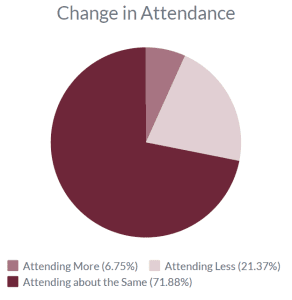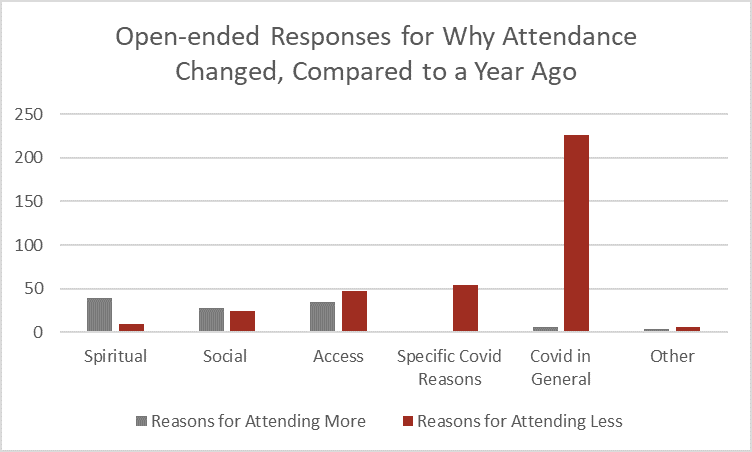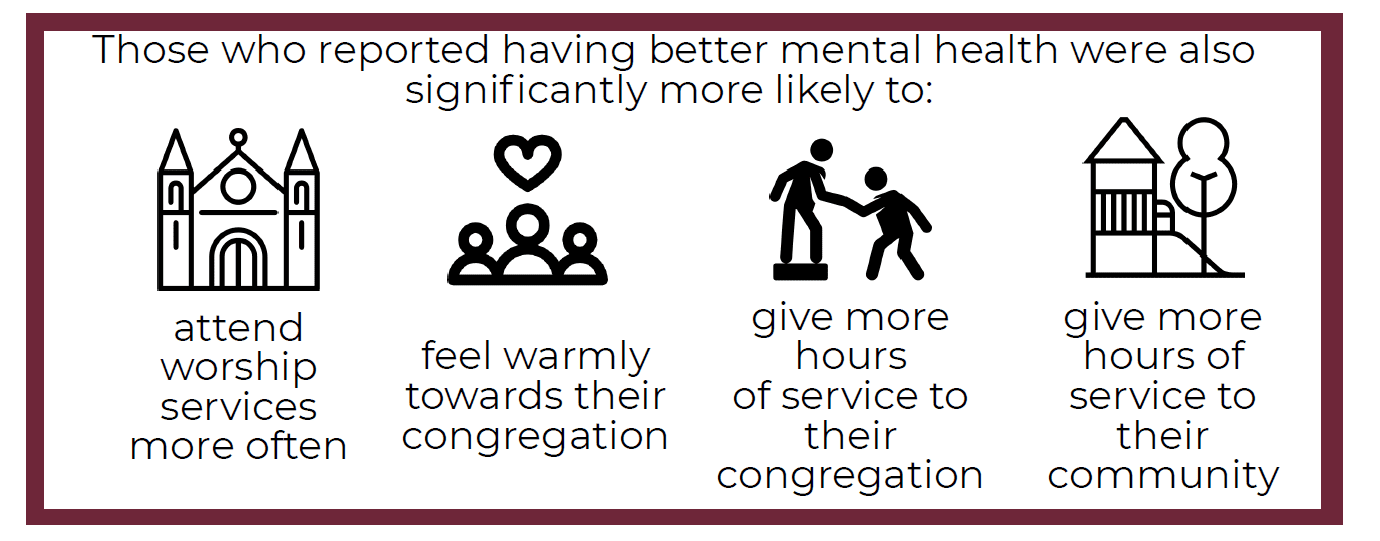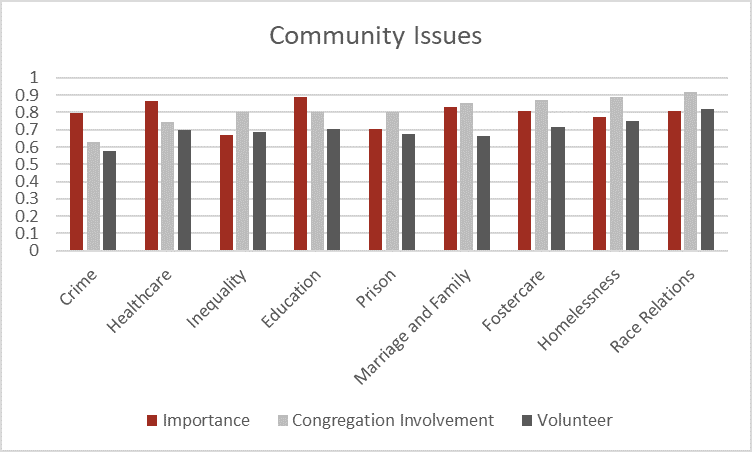Highlights from the 2020 Little Rock Congregations Study
Every four years, the Little Rock Congregations Study, a research project based at the University of Arkansas at Little Rock, works with local congregations to survey members about issues of interest in the community. In 2020, the Study took place during the Covid-19 pandemic, adding a new layer of insights to the research.
Researchers at UA Little Rock, led by LRCS Director Dr. Rebecca Glazier and including a class of 9 students, worked with 35 diverse congregations to survey nearly 2,300 of their members. The surveys included questions about congregation priorities; physical, mental, and spiritual health; and community issues. Following are a few highlights:

- The Covid-19 pandemic had a major impact on worship service attendance. Most of the respondents are attending worship services about as often as they were a year ago (before the Covid-19 pandemic), but 21% say that they are attending less often and nearly 7% say that they are attending more often.
- The Covid-19 pandemic was the most common reason provided for why respondents had changed their attendance behavior. Some people are attending more because the pandemic has sparked a greater need for spiritual connection, but many more people are attending less because the pandemic has reduced service times, made in-person services more difficult, or made online services the only option, which some find less appealing.

- Having a close connection with a worship community and providing service is associated with better mental health. Those with better mental health also attend worship services more often, have warmer feelings about their congregation, give more hours of service to their community, and give more hours of service to their congregation. It is important to note that in conducting these analyses, we are only able to make a correlation between positive mental health and these other behaviors; we don’t know for certain which way causation runs. We do know from other research, however, that participating in a religious community and giving service tends to support good mental health.

- Increased spiritually has positive benefits for congregations and also for communities. Some people–about 1/3 of the sample–are more deeply spiritual, compared to the rest of the sample. These are people who feel closer to God today than they did a year ago, who regularly feel thankful for their blessings, who regularly experience God’s love, and who often feel a deep sense of spiritual peace. These people are significantly more likely to provide service to their congregation and to attend worship services, a finding we would expect. But their spirituality also has positive consequences for the broader community. Deeply spiritual respondents are also more likely to provide service to the community, believe they can make a difference in their community, and be engaged in talking about and helping to solve community issues.

- The most important community issues to the people in our sample are Education and Healthcare, but the issues they most want to see their congregations involved in helping to solve are Race Relations and Homelessness. The issue of Marriage and Family is unique in that it scores highly on both of these measures–it is important to many people in our sample and many people see it as an issue their congregation should address.

The Little Rock Congregations Study research team is working with a Practicum team of five students from the Clinton School of Public Service this spring to host three facilitated dialogues for the community on the issues of Education, Healthcare, and Marriage & Family. These dialogues will bring together congregations and nonprofits to talk about these important community issues and help make connections for collaboration. More information and a registration link will be forthcoming.
For more information about the LRCS, visit their website https://research.ualr.edu/lrcs or contact the project Director, Dr. Rebecca Glazier, at [email protected]. The full 2020 Little Rock Congregations Study Executive Report is available here.
